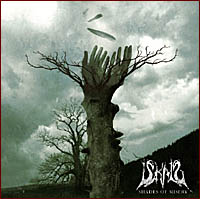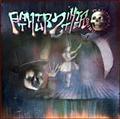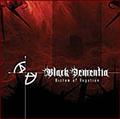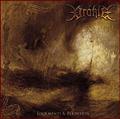ISKALD (no) - Shades of Misery (2007)

Label : Indie Recordings
Sortie du Scud : mai 2007
Pays : Norvège
Genre : Black Metal mélodique
Type : Album
Playtime : 9 Titres - 44 Mins
Véritable terre d’éclosion de groupes de Black Metal dont elle en est la toute puissante mère patrie, la Norvège n’a décidément pas finie de nous répandre ses hordes de nouvelles formations. En est témoin le nouvel exemple avec le premier opus studio de ISKALD, jeune groupe du Nord de la Norvège exécutant un Black Metal aux consonances Thrash et surtout aux accents portés sur la mélodie. Petite particularité : le groupe est un duo dont les deux membres n’ont que dix neuf ans chacun ! Toujours est-il que leur relative jeunesse ne les empêche en aucun cas de produire un Black Metal froid, clair et limpide originaire du pays du soleil de minuit. Nourris par la mythologie nordique et les éléments naturels les entourant comme l’Arctique, Simon Larsen et Aage Krekling ont déclenché le projet ISKALD en 2005 aboutissant à un MCD Northern Twilight. Paru chez Indie Recordings, le duo nous compose donc ce premier album en la personne de Shades of Misery. En véritables autodidactes comme bon nombre de groupes de Black Metal, les deux compères s’occupent de toute l’instrumentation, les compositions et autres arrangements. En véritable poète scandinave et en porte paroles des annales de leurs glorieux ancêtres, ISKALD parvient à capter notre attention sur des morceaux rigoureusement travaillés comme «Lokes Dans» ou bien dans les captivantes et enthousiasmantes «Pesten» ou «Da Gjallarhorn Song» qui sont indubitablement au dessus du lot. De plus, le son soigné et vif ressemblant à du IMMORTAL (son de guitares acéré et riffs glaciaux) participe à la création d’une oeuvre dont la forme est très ordonnée. D’ailleurs, l’organe vocal de Simon Larsen n’est pas sans nous rappeler celle raclée et avare de mots d’Abbath de feu IMMORTAL. Pour les ressemblances, on s’arrête là.
En effet, pour le reste, et bien par moment «The Shadowland» aurait presque réussi à tenir la route mais les deux musiciens préfèrent s’empêtrer dans les compositions et alourdir les arrangements, ce qui aboutit au final à une total perte du fil conducteur d’un morceau. Les césures sont ainsi trop fréquentes pour que l’on puisse retenir un ou deux riffs d’un titre. Pas de quoi s’extasier, ISKALD a encore beaucoup de choses à améliorer pour accroître son nombre de fans, mais c’est un début somme toute assez réussi et agréable. En continuant ainsi, ils ne pourront que livrer des albums costaud et généreux. Un album sympa mais cruellement moyen dans son ensemble. Le talent, ISKALD le possède, le niveau, on est moins persuadé eu égard au résultat. En attendant la suite…
Ajouté : Mardi 25 Septembre 2007
Chroniqueur : Loki
Score :   
Lien en relation: Iskald Website
Hits: 12895
|














